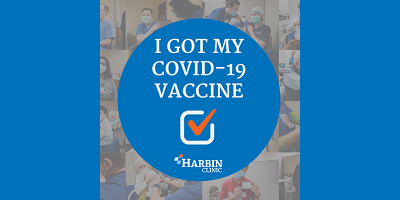COVID-19 Viral and Antibody Testing: Should You Be Tested?
THURSDAY, MAY 14, 2020

With testing for COVID 19 steadily becoming more readily available, you may be asking yourself if you should be tested, as well.
There are currently two types of testing in regards to COVID 19, and it’s important to understand the differences between them. One test determines if an individual has an active infection, we will call that a viral test. The other assesses whether someone had a previous coronavirus infection, we refer to that as antibody testing. A positive antibody test does not necessarily mean an individual had COVID 19 as other coronaviruses can also result in a positive antibody test.
When to Request A Test
A viral test should be administered when someone is actively showing symptoms of COVID 19. If you test positive for COVID 19, the Centers for Diseases Control and Prevention (CDC) recommend specific steps to keep you and those living with you as safe as possible. Most cases of COVID 19 exhibit mild symptoms or may be asymptomatic, and individuals will likely be able to fully recover at home. If symptoms worsen into a severe illness, you should seek medical attention immediately.
A negative COVID 19 test indicates you were likely not infected at the time your sample was collected but doesn’t necessarily mean you won’t get sick. The test result only means that you did not have COVID 19 at the time of testing. If you have been exposed to someone with COVID 19 or are exhibiting the symptoms associated with COVID 19, you should take preventative measures to protect yourself and others.
The purpose of antibody testing is to let you know if you’ve had a previous coronavirus infection. Because it takes your body 1-3 weeks to develop antibodies for an infection, this type of testing is typically administered 2-3 weeks after someone has recovered from their infection; therefore it is not an appropriate method of testing to determine if you have an active infection.
“The presence of antibodies may indicate prior COVID 19 exposure or infection, however, positive results may be due to past or present infection with non-SARS-CoV-2 coronavirus strains,” says Chief Medical Officer Dr. Ed McBride. “It’s important that our patients understand the value of the antibody testing and that these tests should not be used to diagnose COVID 19.”
You may be a good candidate for this test if you experienced symptoms of COVID 19 earlier in the year but did not get tested. Or perhaps you were significantly exposed to a COVID 19 positive individual, but you never exhibited symptoms yourself. If you test positive for an antibody test, you likely had an infection with SARS-C0V-2 or a related coronavirus. At this time, it is unclear if those antibodies can provide protection or immunity against becoming infected again.
How to Get a Test
Once you’ve determined which test may be most applicable for your current circumstance, it’s important to know the easiest steps to obtain these tests.
For those exhibiting symptoms associated with COVID 19:
- Contact your provider’s office.
or
- Reach out to Harbin Clinic Immediate Care.
- Schedule a HarbinCONNECT virtual visit to get a real-time assessment of your symptoms.
- Harbin Clinic providers will assess your condition and determine how best to proceed. They may recommend testing during a visit to the practice or refer you for testing.
For those requesting an antibody test:
- Contact your provider’s office.
or
- Reach out to Harbin Clinic Immediate Care.
- A Harbin Clinic representative will be able to schedule an appointment for an antibody testing.
During these unpredictable times, testing options and how to go about receiving them can be overwhelming and confusing. Harbin Clinic is here to help answer your most concerning questions and provide the solutions you need while caring completely. Contact your doctor’s office or find a provider here to schedule an appointment and discuss your options.

